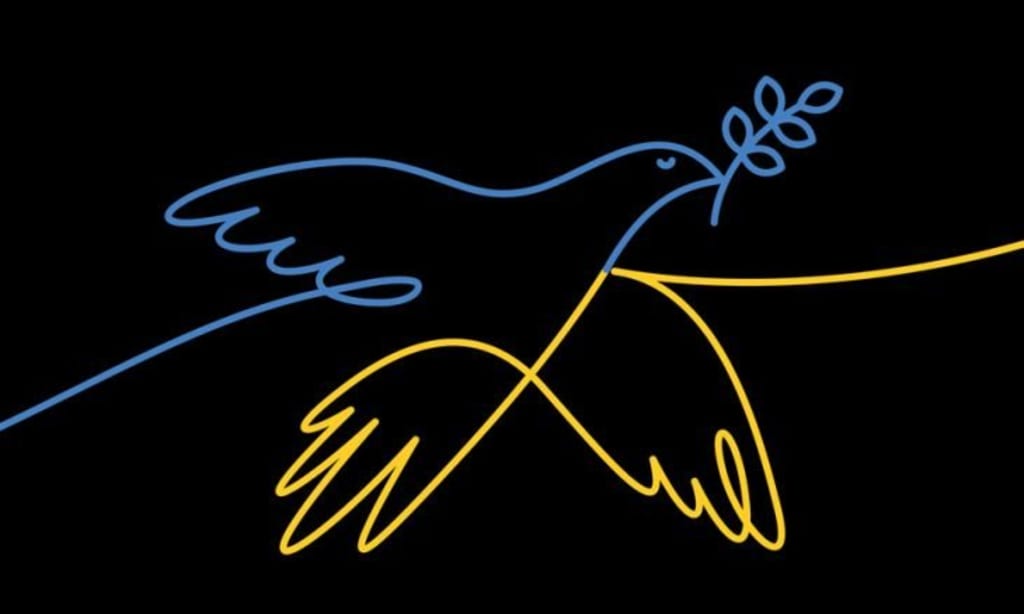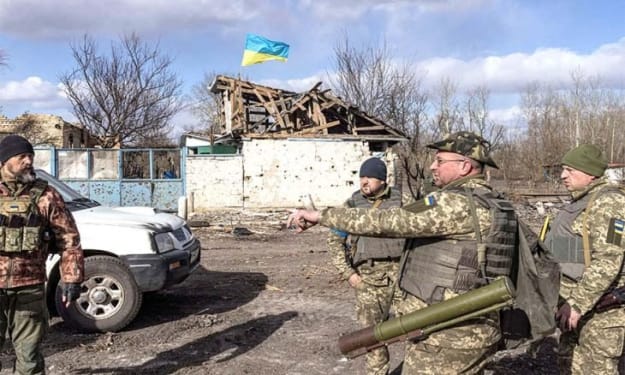When US researchers warned of the predominance of Russia in Ukraine!
Many commentators are still promoting the idea that the Ukraine war is a “plot” and a “trap” created by America to target Russia, and that it is a well-prepared “plan” prepared by the West for Moscow, recalling the incident of Iraq’s occupation of Kuwait

Many commentators are still promoting the idea that the Ukraine war is a “plot” and a “trap” created by America to target Russia, and that it is a well-prepared “plan” prepared by the West for Moscow, recalling the incident of Iraq’s occupation of Kuwait, despite the great difference between the two cases, as if Russia had fallen into a war Ukraine suddenly, and not a crisis that has been rolling like a snowball since the collapse of the Soviet Union, and Moscow considers it a source of threat to its national security, if it approaches NATO and the West, and it is clear that Putin when he entered this war was prepared to a large extent for all the consequences, and his assessments of non-military intervention The Western sanctions were correct, so the Kremlin made this decision of its own free will and was not deceived by it.
If we look at an important American report issued three years ago by the RAND Corporation of America, closely related to the American administrations, we will find that a group of American researchers prepared a detailed study of the methods and options for confronting Russian expansion, nonviolence, that is, economic options and cooperation with allies, up to sanctions. And the cost of each of these methods to the United States, and perhaps what is remarkable about this study is that it acknowledges that the conflict in Ukraine, if it erupts, “will have great advantages for Russia because of the proximity.” The study also considers that the deployment of NATO forces on Russia’s borders, may in sum pose the highest risks on the US, according to a lengthy table of benefits and cost estimates for each option.
The report begins with the adage that "Russia is neither as strong nor as weak as it appears" and that "Despite these weaknesses and concerns, Russia remains a strong country, and continues to be able to rival the United States in a few key areas." The authors of the report believe that Russia's greatest weakness is its relatively small economy, which is dependent on energy exports, and its greatest strength is its military machine and information warfare. Thus, the report places the option of increasing oil production among the options that are most harmful to Russia, and the least costly to America. “Expanding energy production in the United States may stress the Russian economy, which may restrict its government budget, and thus its defense spending. By adopting policies that expand global supply and lower global prices, the United States can limit Russian revenue. Doing so leads to little cost or risk.” As he talks about trade sanctions here, the researchers say, “Deeper trade and financial sanctions are also likely to deteriorate the Russian economy, especially if these sanctions are comprehensive and multilateral.” The only mention of Ukraine in the report comes by warning against getting embroiled in a conflict in which Moscow is more likely to win. “Providing lethal assistance to Ukraine would exploit Russia’s greatest external weakness, but any increase in US military arms and advice to Ukraine must be carefully controlled,” he says. To increase the costs to Russia of maintaining its present commitment, without provoking a much broader conflict in which Russia, because of proximity, would have significant advantages. Likewise, the Americans view Central Asia as a closed circle of Russian interests. It is difficult and costly to confront Moscow in this stadium:
Russia’s latest preparation for what now seems like a potential large-scale invasion of Ukraine was in part sparked by the current Ukrainian government inviting American and NATO forces to conduct joint exercises and engage in other military cooperation to boost Ukraine’s defensive capabilities against further Russian aggression. Despite the flurry of talks between and among Russia, the U.S., NATO and other allies—including offers to discuss Russian security concerns—since President Biden met with President Putin in Geneva in June 2021, Moscow has shown no sign of releasing the pressure. Indeed it has ramped up its military presence in recent weeks.
Palestinianhe





Comments
There are no comments for this story
Be the first to respond and start the conversation.